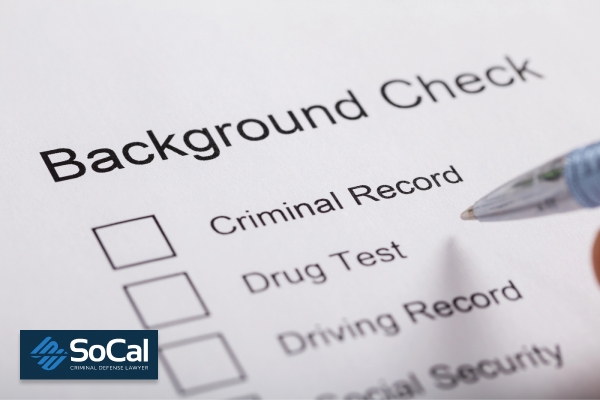
Understanding the difference between expungement and sealing is important. Both processes aim to help people move past their criminal records. However, they work differently and have distinct benefits. Knowing which option is right for you can impact your future.
At SoCal Criminal Defense Lawyer, we help clients navigate expungement and sealing. We understand the complexities of the legal system. Our goal is to provide you with the information and support you need. Let's explore the details of these two processes.
Expungement in California removes a criminal conviction from your record. This process allows you to legally say you have not been convicted of that crime. Expungement can help improve job prospects and other opportunities. However, certain government agencies can still access the expunged record.
To qualify for expungement, you must meet specific criteria. This usually includes completing probation and not serving a current sentence. Expungement is available for many misdemeanors and some felonies. Understanding these criteria can help you determine your eligibility.

Many misdemeanors, such as petty theft and public intoxication, are eligible for expungement. Certain non-violent felonies can also be expunged. Completing probation and meeting other requirements is necessary. Consulting with a criminal defense lawyer can help clarify your eligibility.
Not all convictions qualify for expungement. Serious felonies, such as those involving violence, are often excluded. Understanding the types of eligible convictions is essential. Our team can guide you through the process and help determine your options.
Record sealing in California involves hiding a person's criminal record from public view. The record still exists but is not accessible to most employers or landlords. Sealed records can provide a fresh start by limiting who can see your criminal history. However, certain criminal justice agencies, like the police department, can still access them.
Sealing is often used for juvenile offenses and certain adult cases. This process can help protect your privacy. Understanding how sealing works can help you decide if it's the right option. Our legal team can assist you with the process and protect your rights. See the difference a sealed record can make in your life.
Juvenile offenses are commonly eligible for sealing, which helps young individuals move forward without a criminal record. Certain adult convictions, such as arrests that did not result in charges, may also be sealed. Understanding eligibility requirements is key.
Sealing is also possible for some non-conviction records. This includes cases where charges were dismissed or you were acquitted. Consulting with a lawyer can help determine if your record qualifies. Our team is here to help you navigate the sealing process.

Expungement removes a conviction from your record, but certain government agencies can still access it. While most employers won't see the expunged record, it may still appear in some government-related background checks. Additionally, expungement does not completely erase the conviction; it modifies your record to reflect that it has been dismissed.
Sealing a record hides it from most public view, but it remains accessible to law enforcement and certain other agencies. This can be beneficial for privacy but does not completely eliminate the record. Knowing these limitations can help you make the right choice about which process to pursue.

Expungement erases a conviction from your criminal record. This means it will not appear on most background checks conducted by employers or landlords. Expungement can seriously improve your chances of securing a job or housing.
Sealing a record hides it from most background checks but does not eliminate it. Law enforcement agencies could still see sealed records. Understanding how each process affects background checks can help you choose the best option for your situation.
When discussing your record with potential employers, honesty is important. If your record has been expunged, you can legally say that you have never been convicted of the expunged crime. This can improve your chances of securing employment.
If your record has been sealed, you may not need to disclose it to most employers. However, certain jobs, such as law enforcement or government positions, may still require disclosure. Understanding your rights and how to discuss your record can help you navigate job interviews effectively.

Our SoCal Criminal Defense Lawyer team is experienced in handling expungement and sealing cases. We understand the legal requirements and processes involved. We aim to help you achieve the best possible outcome for your situation.
We will assess your eligibility for expungement or sealing and guide you through the application process. Our law office will address all the required paperwork and represent you in court. We provide ongoing support and ensure all records are updated correctly.

Facing a criminal record can be challenging. We offer a free consultation to discuss your case at SoCal Criminal Defense Lawyer. We will review your arrest record and see if a sealing of criminal records is possible for you. Your life can become much easier with sealed criminal records or even an expunged criminal record. Not every criminal offense is eligible for expungement or sealing. That is why we encourage you to reach out to us as soon as possible.
Do you want to get your arrest record sealed? Do you have questions about juvenile records? Contact our criminal law defense firm to schedule a free case consultation.

Schedule Your Free
Confidential Consultation


Follow Us
"*" indicates required fields